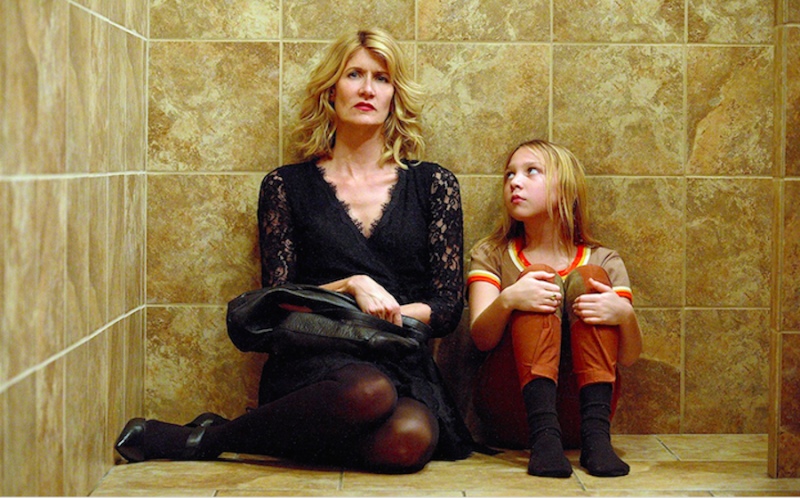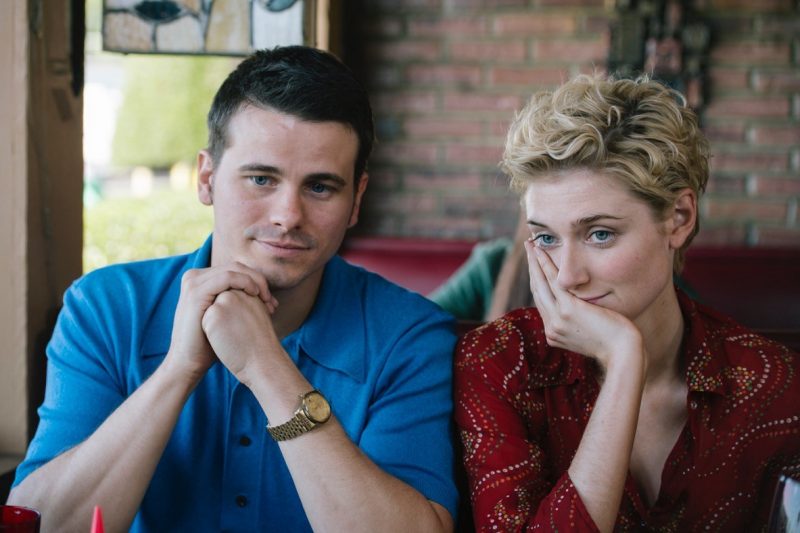Jennifer Fox’s harrowing autobiographical film is by no means an easy watch, but it’s an essential one.
The film tells the true story of writer-director Jennifer Fox, played by the brilliant Laura Dern, whose mother discovers a story she had written as a child detailing a disturbing relationship between herself and her running coach. A grown woman and successful journalist, Dern’s character initially brushes off her mother’s concern, but can’t help reliving the memories of that formative time in her life.
The narrative is so cleverly crafted around Jenny’s memories being an unreliable narrator of past events to her present self as well as to the audience, who have to work with her to contextualize a child’s understanding of the events in our adult minds.

The young Jenny, played terrifyingly well by Isabelle Nélisse, is one of five siblings, often overlooked by her parents, and so is grateful for the attention granted her by her glamorous horse riding teacher Mrs. G. (Elizabeth Debicki). There, she’s introduced to running coach Bill (Jason Ritter), whose cult-like mantra that pain leads to success sets off alarm bells instantly. Though a sense of dread permeates the entire film, his presence is sickeningly sinister right from the start.
Despite knowing the conclusion of events, we relive the journey with Jennifer, who must unpack her own subconscious, and it is difficult not to be taken in by the child’s perspective. The young Jenny, so eager for love and acceptance, felt like she was fully grown at age 13, and Nélisse does a phenomenal job of encapsulating that in her performance.
There’s a nuanced conflict between the young Jenny, who wishes to hold on to her romanticized version of events, where she is an agent, not a victim, and the present day Jenny who slowly realizes that what happened to her was so so wrong.

The journeys unfold simultaneously, and through a mixture of narration and time jumps, we see the same events multiple times with key differences as the reality of the matter becomes less and less clouded. The scenes of abuse themselves are awful to watch, but the way in which they are filmed and fed to the audience does a disturbingly good job at showing how easy it is for children like Jenny to be taken in by abusers.
The parallel horror is watching Laura Dern’s older Jennifer vehemently denying that anything out of the ordinary happened to her — insisting that she just had an older boyfriend that she hid from her parents. Dern delivers the broken-record denial and slow realization well, and the final moments of the film are a triumph, but her scenes are more clunky with exposition and contrived boyfriend drama. The strongest parts of the film are without a doubt the free-flowing flashbacks that embody the young Jenny’s perspective in every frame.
While Common plays a pretty generic boyfriend, Ellen Burstyn is brilliant as Jennifer’s mother. Her concern for her daughter — which comes much too late — comes from a place of real love that makes it difficult for even the most cynical of audiences to lay the blame firmly at the feet of Jenny’s parents. She too has told herself stories about what happened in order to live with her regret, and it’s plain in every shot she’s in.

The entire film is at its core concerned with storytelling and the mutability of truth, and it does a disturbingly good job at making its audience feel gaslighted. Alongside the flashbacks, the two timelines start to blur into one another to great effect, and the older Jenny’s documentary filmmaking career influences how she interrogates her own memories, literally interrogating the characters, as well as her younger self. It’s a genius touch that allows the complex motivations and emotions space to be explored on screen.
As awful and scary as the subject of this film is, it’s a respectful and important story of trauma and recovery, told in a universally powerful fashion. This is a perfect example of the kind of films that can exist in a world where women writers and directors are given the space to helm their own projects and tell their own stories — a brilliant, complex, real, female story that sensitively handles difficult subject matter.
The Tale screens at Sundance Film Festival London today, Saturday 2nd June. For more information and to buys tickets, click here.
https://www.youtube.com/watch?v=tXpYsr3AL4U